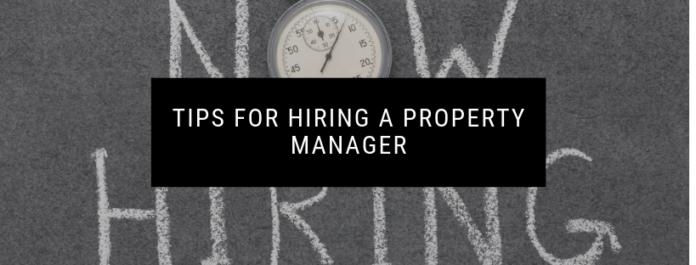There are about 16.7 million properties across the United States that are owned by individual investors. That equates to 22.7 million units.
Do you want to own a rental property but it is too expensive of an investment where you live? Then why not consider long distance real estate investing?
Some unique challenges come with renting property at a distance. Use this guide to help you get started.
Why Go out of State
Considering investment property that is out of state comes with its own set of pros and cons. If you don’t restrict yourself to your immediate area, then you open yourself up to potentially more affordable real estate markets.
You can think about your long term personal goals. Buy a home in an area known for being home to retirees. First, you will rent to an older crowd that is less likely to cause damage. Second, you can invest in your future retirement home.
You may also be able to invest strategically and gain some tax advantages. Maybe you have children attending college in another state. Buying a home could save you the expenses of paying for a dorm and hotels for your visits.
Then every time you visit, you can deduct 50% of the total expense off your income tax. You can use this trip to “inspect the property”.
Expect Some Challenges
When it comes to investing out of state, you are at a disadvantage when it comes to knowledge of the area. It will require a lot more leg work on your part to ensure that you buy in the right area of town.
You will also need to start from scratch when it comes to finding reliable service providers. A good place to start with this is reading online reviews. You can also talk to your real estate agent and ask them for recommendations.
Many investors find it frustrating that they must depend on others for the day to day tasks. Giving up control is frustrating, but well worth it to save yourself the frustration and wasted time.
Before you try to start renting, create a property management plan. This way, you have a clear idea of what it will take to manage the property.
Carefully Choose Your Tenants
The one thing that dictates your experience as a landlord is how reliable and responsible your tenants are. Make your life easier by doing a thorough check of potential tenants.
Screen the applicant’s rental background. Have them fill out a rental application and follow up with their references.
Have a Maintenance Plan
The size and type of property you plan to rent will dictate the amount of maintenance you will need to do. Condo buildings and apartment complexes have maintenance crews who will take care of the grounds and public areas. All you need to worry about is the upkeep of your unit.
A detached home is going to require more work on your part. It is now your responsibility to care for the inside and outside of the house.
Your first option is to negotiate with the tenants to do the year work themselves. Or you can hire someone to take care of it. Having the tenant perform the work is cheaper, but you take a risk with reliability.
Build Your Handyman Contacts
Since you are out of town, it is smart to start filling your contacts with connections for repair people. You’ll want a trustworthy general handyman, electrician, and plumber.
Establish these connections before you start renting your property. This way, you aren’t scrambling in the middle of an emergency.
Make an arrangement that allows you to call up your repair people and request work to be done. They will head out to your rental property an ensure everything is in order. You will then get a bill later for the total amount of work performed.
Get Someone Local
If you plan to rent out an apartment or condo, then other tenants will report to the management or board if there is any misconduct. However, this will reflect poorly on you, so try to choose trustworthy tenants that will behave appropriately.
If you plan to rent out a home, there is a lot more privacy for your tenants. But this also means that there is a lot more room for misbehavior.
To combat this, enlist someone local that can be your eyes and ears. That way if problems are developing, you can know right away.
Automate
It can get tricky collecting rent when you are in another part of the country. It isn’t like you can pop on by and collect it in person. The easiest thing you can do is arrange for automatic payments.
If this doesn’t work, request that your tenant pay by wire transfer or any other money transfer service.
A final option is to collect post-dated checks from your tenant upfront. This only works if the lease is fixed term and you know how many checks are required for the entire lease term.
Though this option probably won’t be popular with most tenants.
Have Clear Rules and Enforce Them
This is your property, so you make the rules. Establish the rules and be clear from the start. It is smart to go over the rules in person while also supplying them in written form.
You should also check to make sure that your rules are legal in the state where your property is located. It is best to have a lease that complies with the state’s regulations.
This way, you don’t have to worry about violating the law.
Communicate!
Communication is vital for a successful tenant and landlord relationship. It is your job as the landlord to establish the level of communication with your tenants. You could do this with phone calls, texts, or emails.
Provide your tenant with multiple ways of getting in touch with you. It is also wise to give them a contact for your proxy tenant.
If you plan to be away for longer than a few days, let your tenant know in advance. That way, there are no surprises.
Inspections Are Vital
It doesn’t matter if your rental is across the street or the country; inspections are a must. You need to do a walk-through before the tenant move in.
This will document the condition of the property. Make notes of any damage or items that require repair.
Then you will need to do another when the tenant moves out. This way, you can hold the tenant accountable for any damage that is beyond the typical wear and tear on the property.
Some landlords like to perform inspections more often. This is typically the case when you’ve updated the condition of the property in some way. Maybe you recently renovated or laid all new sod.
If you choose to do this, you’ll need to notify the tenant in advance. That way, they know when to expect you.
Have Insurance
If you own property, you need to have insurance on it. If you plan to rent it out, you need to have a bit more protection. Then depending on the type of property you own; you may need even more insurance.
Here are some of the things you should think about purchasing insurance for:
- Flood
- Fire
- Theft
- Lost rental income
- Hazards- sewer backups, fires, etc.
- Equipment breakdowns
- Liability insurance
You should also advise your renters that they should purchase renter’s insurance. While your insurance covers the property and the structure, it does not cover their personal belongings.
Hire Someone
If all of this sounds like a lot of work, you’re right, it is. If balancing the management of your rental property and your everyday life is too much, then you should consider hiring a property manager.
Do a cost-benefit analysis of the cost of the property manager and the amount of time they will save you. Keep in mind that a property manager will take care of every aspect of your rental property.
They will handle the marketing of an available unit, screening tenants, inspections, paperwork, maintenance, rent collection, and move-outs. Then all you need to do is check in periodically with your property manager and collect your money.
Try Long Distance Real Estate Investing
When it comes to long distance real estate investing, there are a few things that you will need to take extra precaution with. If you do your research and take all of the steps to prepare, then you should find that you have a pleasant experience as a long-distance landlord.
One of the best things you can do is find a reliable resource. Somewhere you can go to answer your questions.




















